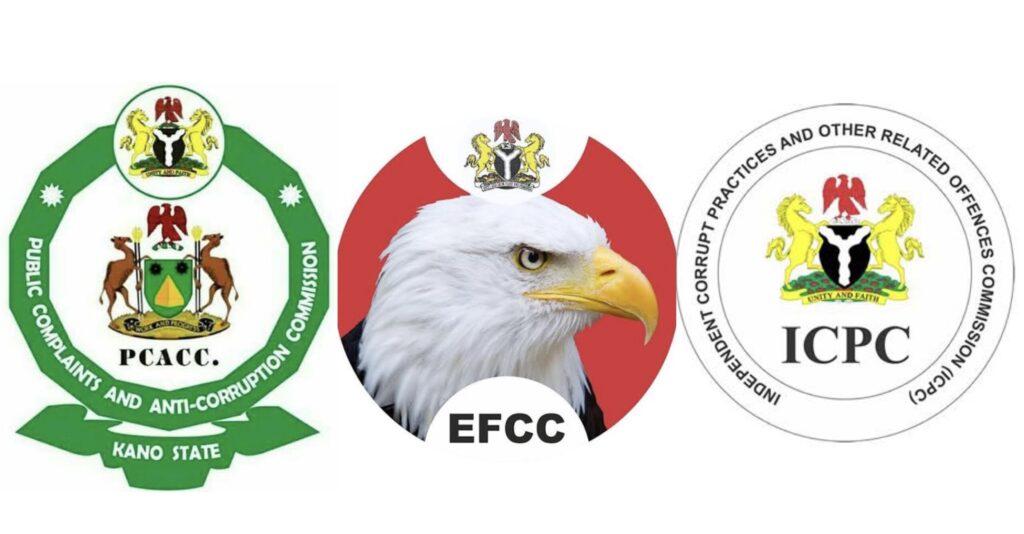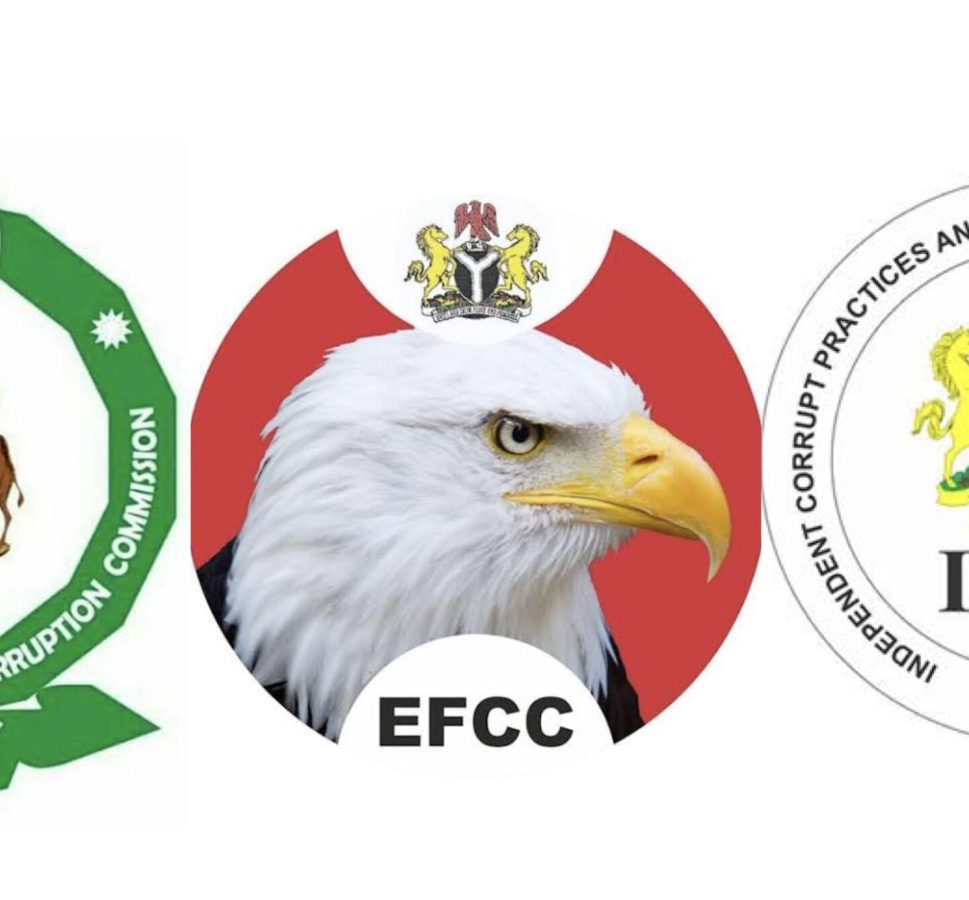
Defendants in the lawsuit include the EFCC, the ICPC, and the Code of Conduct Bureau.
The Kano State government has dragged three Nigerian anti-corruption agencies Economic and Financial Crimes Commission (EFCC), Independent Corrupt Practices Commission (ICPC) and Code of Conduct Bureau for allegedly intimidating the state Anti-corruption Commission (PCACC).
The legal action may be related to invitations to the Executive Chairman of PCACC, Bar. Muhuyi Magaji Rimin Gado, by all three Nigerian authorities seeking data on the State Commission’s actions from 2011 to 2023.
The invites and inquiry, according to Bar. Muhuyi, were “politically motivated” and part of a strategy by certain influential politicians including former governor, Abdullahi Ganduje, who is currently the national chairman of the ruling All Progressives Congress.
Defendants in the lawsuit include the EFCC, the ICPC, and the Code of Conduct Bureau.
The Court, presided over by Justice Farouk Lawan Adamu, ordered federal authorities and their agents to avoid interviewing or probing PCACC personnel, as well as intervening in PCACC proceedings.
The Order, with suit number K/M1128/2023, further instructed all parties interested in the case to preserve the Status Quo Ante-Bellum.
The Kano State Attorney General, Kano State Public Complaints and Anti-corruption Commission, and Rimingado (as first, second, and third plaintiffs) filed the action against the EFCC, Code of Conduct Bureau, and ICPC (as first, second, and third defendants).
The court was quoted by PM News Nigeria as saying: “Upon reading Motion Exparte, together with accompanying affidavit duly sworn to by one Khalifa Auwal Hashim on 28th August, 2023.
“And after hearing Mr. H. I. Dederi Esq. (Attorney General of Kano State) of Counsel for the Applicant, it is hereby ordered that all parties to maintain Status Quo Ante-bellum.
“Order is hereby include by way of Interim Injunction restraining the Defendants/Respondents from meddling or delving into the affairs or taking any step on, related to or in connection with the functions, duties and affairs of the Plaintiffs/Applicants,” the order stated.
The Court also declared that: “By virtue of the Supreme Court decision in Nwobike vs FRN, the powers of the EFCC and other respondents to investigate alleged financial crimes is not at large and does not transcends all boundaries.
“The scope of the powers of the EFCC is not open-ended and indefinable and does not include the powers to investigate alleged infractions committed at state levels where there are relevant penal provision.
“The purpose of acts enabling the creation of the Respondents to investigate alleged administrative malfeasance or financial crimes is not to make a pigmy or to render other similar agencies and relevant penal legislations at state level ineffective, moribund, inapplicable or redundant.
“The EFCC, ICPC and Code of Conduct Bureau cannot arbitrarily meddle or interlope into the affairs of the office of the Attorney-General or any other agency, department or parastatal under his supervision without recourse to the Hon. Attorney-General as the head of the Department or Chief Law Officer of the State.
“The EFCC or any of the respondents are not empowered by their enabling laws to investigate financial crimes allegedly committed in respect of the finances, administrative structure and properties of state governments based on faceless, vague and nebulous complaints by meddlesome interlopers.”






